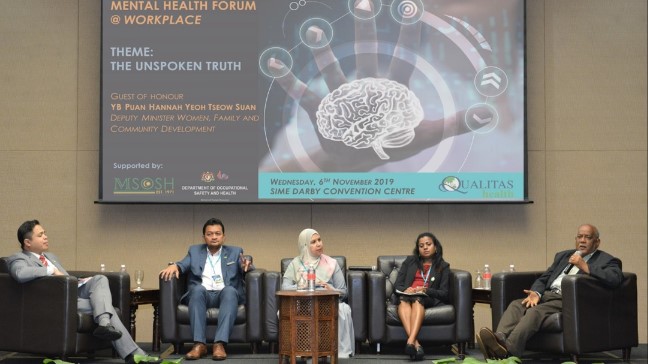KUALA LUMPUR, Nov 7 – Primary health care must shift towards being the first line of assistance for mental health problems, Qualitas Medical Group said.
The primary health care provider highlighted an AIA Bhd’s surveys in 2017 and 2018 that found 12 per cent of employees had high levels of anxiety and depressive symptoms, and that about half of employees surveyed suffered from at least one dimension of work-related stress.
“Primary health care needs to evolve, equipping its workforce with the right knowledge, confidence and capacity to provide mental health support, now more than ever,” said Sarah Waheeda Muhammad Hafidz, Consultant Industrial and Occupational Psychologist from Leaderonomics, during a panel session by Qualitas to raise awareness and initiate robust discussions on mental health at the workplace.
“With primary health care practitioners onboard, I am certain that employees will feel less stereotyped and more open to receiving treatment in the early stages. This would greatly improve the mental health outlook in Malaysia, contributing to a positive community, workforce and the nation’s economy.”
Qualitas added in a statement that the role of the primary health care now doesn’t only require supporting physical wellbeing, but should also be the first line of assistance for mental health issues.
“More and more, the primary healthcare workforce will need to be empowered with the right knowledge, confidence and capacity to provide first line mental health support for patients in their time of need,” it said.
Taking part in the panel, Qualitas chairman and managing director Dr Noorul Ameen Mohamed Ishack stated that patients have been visiting GPs over the years complaining of frequent migraine, insomnia, fatigue and impaired concentration; and they may not have realised that they were suffering from mental health issues.
“Coupled with the stigma attached to mental health wellness issues, these patients are often reluctant to be seen as visiting mental health professionals. Sufferers are looking to primary health care personnel for their needs. As such, we as primary health care practitioners need to be empowered, upskilled and be prepared to meet these requirements,” he added.








